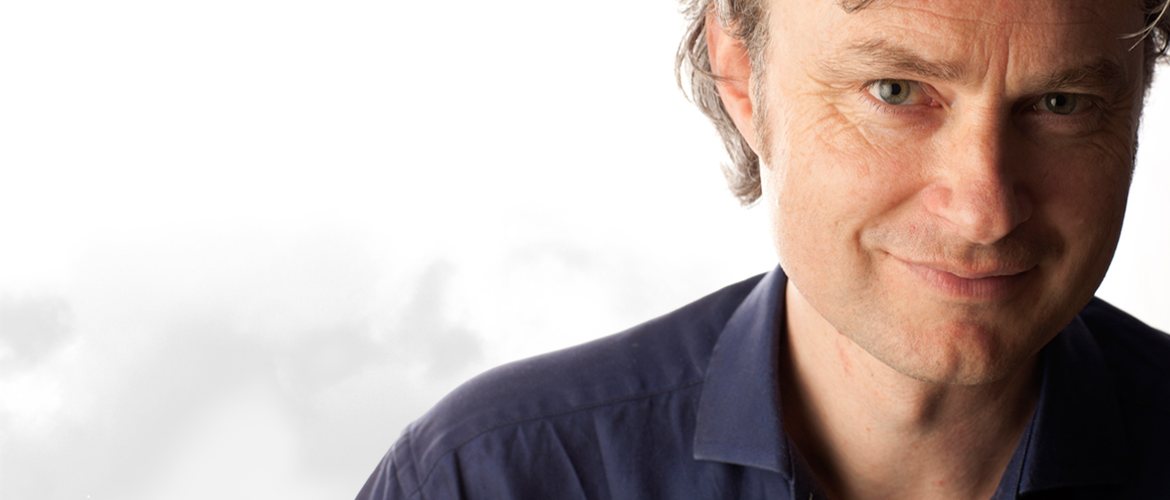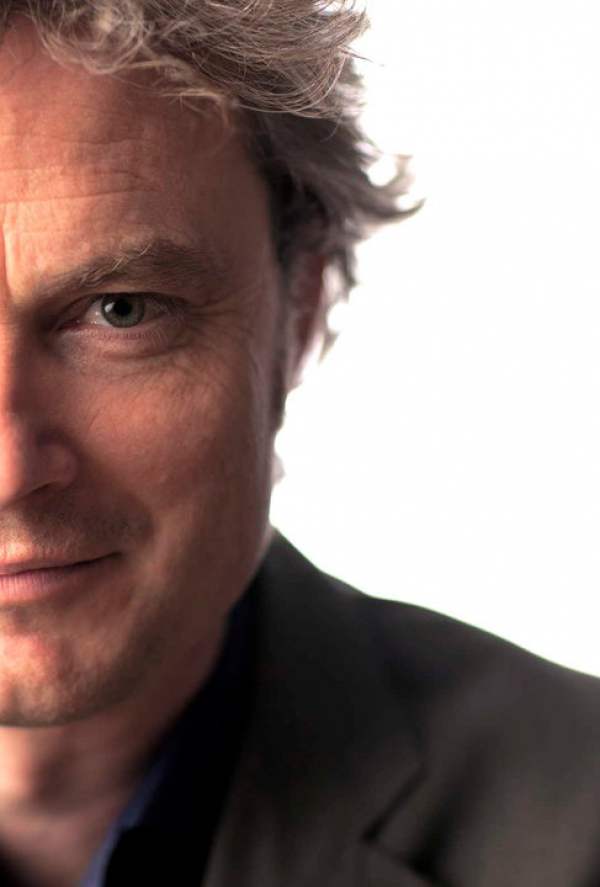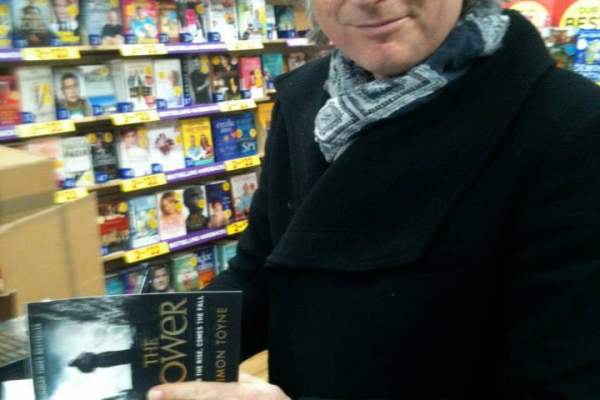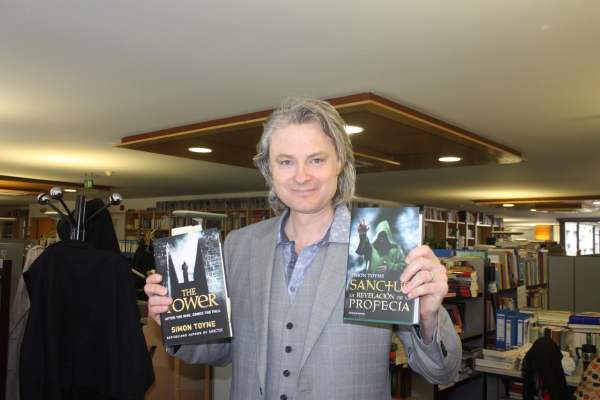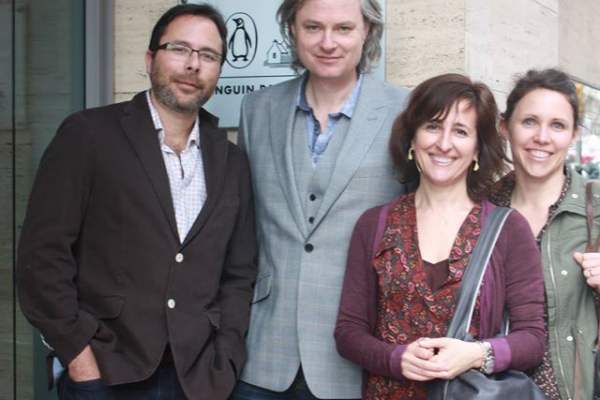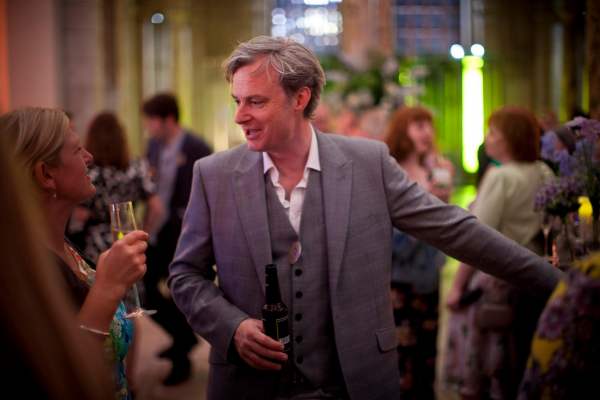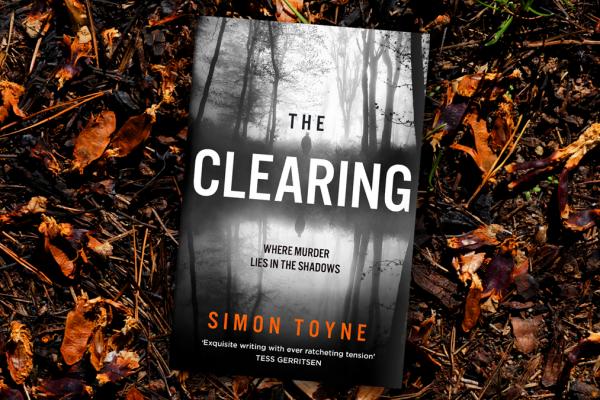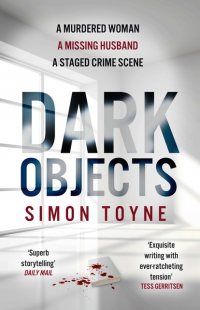Interviews
SIMON TOYNE: What Book...?
Simon is interviewed by the Daily Mail. Read the interview here
Thriller writer Simon Toyne and wife Kathryn at their Framfield home
Chin Wag at the Slaughterhouse: An Interview with Simon Toyne
Simon meets Richard Godwin to talk about the success of his fiction and working for television.
Writing Religious Thrillers And Storytelling Lessons
Read the full interview and access the podcast at the Creative Penn website
2013 Book of the Year Winner on Authors on the Air
An Interview with Simon Toyne
Simon Toyne: An Accidental Trilogist
An Interview with Simon Toyne
Read the interview on ReaderDad.co.uk - Home of Dark Crime and Speculative Fiction book reviews
An interview with Simon Toyne, author of The Sancti Trilogy
Raven Crime Reads Interview
Read the interview in its entirety on the Raven Crime Reads blog
The Dark Side-And Why We Love It
Simon Toyne - the adventure continues!
Miranda Dickinson interviews Simon for her Coffee and Roses blog
BookD Podcast: Simon talks about his novel, The Key
Write What You Know: Simon Toyne On His First Novel, Sanctus
Ten Terrifying Questions from Australia's Booktopia Blog
1. Where were you born? Raised? Schooled?
I was born in an out-of-the-way, seaside town called Cleethorpes in the north east of England. I lived there until I was 9 then began a gradual migration south, ending up at Goldsmiths College in London where I studied English and Drama.
2. What did you want to be when you were twelve, eighteen and thirty? And why?
At twelve, I wanted to be an actor because it seemed glamorous and exciting; at eighteen I wanted to be a film director for the same reasons; at thirty I wanted to be married to a beautiful woman and have a couple of fantastic kids. (Only one of these dreams came true).
3. What strongly held belief did you have at eighteen that you do not have now?
That England would win the world cup in my lifetime.
4. What were three works of art – book or painting or piece of music, etc – you can now say, had a great effect on you and influenced your own development as a writer?
Star Wars and The Empire Strikes Back – the definitive popular cultural works of my generation. (I’m counting these as one choice as you can easily watch them back-to-back with enough caffeine and sugar and a wee break in the middle).
The Silence of the Lambs, by Thomas Harris. The textbook for the modern thriller. Beautifully written, so well put together. I read it when it first came out and re-read it when I was writing my first novel to see how he dealt with the mechanics of things like suspense and action. I’m about a third of the way through book two of the Sanctus trilogy and just read it again to keep myself honest. I think this may become a small ritual.
Hamlet, William Shakespeare. I studied it at school and still find myself referencing it. It’s also the one play I’ve seen performed more than any other and it still manages to deliver a great night out.
5. Considering the innumerable artistic avenues open to you, why did you choose to write a novel?
I had carved a pretty successful career as a TV executive, but was feeling creatively underwhelmed. I also had a family to support, so I couldn’t just go off on some kind of artistic ramble to make myself feel better. Writing a commercial thriller seemed like a good option. I’ve always loved them and I’d spent nearly twenty years in a very commercial background so understood what was required to hook an audience and put the pieces of a story in the right order. So I took a sabbatical and wrote the first third ofSanctus. It took another year and a half to finish it, writing at weekends and in between freelance TV work.
6. Please tell us about your latest novel…
Sanctus is a contemporary, extremely fast paced thriller that will appeal to readers who love writers like Robert Harris, Lee Child, and Dan Brown.
At its heart is a woman’s search to find out what happened to her brother, set against one of the most fundamental and best-known stories of humankind. It takes the point of view that, as the victors write the history books, the church has given us its own version of Genesis and it’s not necessarily the truth.
7. What do you hope people take away with them after reading your work?
I hope they take away their litter.
8. Whom do you most admire in the realm of writing and why?
I admire anyone who can arrange words on a page in such a way that I feel compelled to turn it and see what’s on the next one.
9. Many artists set themselves very ambitious goals. What are yours?
I have a slight issue with the word ‘artist’? To me it suggests a kind of creativity born of some sort of intense, divine inspiration. Writing is a craft. You have to work at it. You have to put the hours in. My goal is simply to make sure whatever I’m working on ends up in the best shape possible.
10. What advice do you give aspiring writers?
Write. Read. Re-write. Repeat.
2012 Q&A with Worthing Book Network
I’ve recently read your début novel Sanctus, which was published in over 50 countries, translated into 28 languages and was the biggest selling début thriller of 2011.Were you aware immediately after publication how successful the book was going to become?
Not at all. I knew publishers liked it because a lot of countries had bought the rights to publish it, but that doesn’t necessarily mean the public would like it. With any book there’s a certain lining up of the planets that needs to happen for it to become successful. Some of this you can control – like the writing, the look of the book cover, the way it is marketed etc. – but the crucial bit, the making people buy it and read it and like it, is entirely in the lap of the gods. When the hardback of Sanctus came out in the UK I was half expecting it to sink without trace, despite all of the amazing efforts of everyone at HarperCollins and my brilliant agent, and I imagined I would have to do the literary equivalent of washing dishes for years to pay them all back. Fortunately it went into the Sunday Times bestseller charts, the paperback did better and The Key did even better than that – so, so far so good. But I still feel responsible (and hugely grateful) to all those people who took a risk on an unknown author. You can never underestimate the luck factor in all of this.
Your second novel, The Key, is next on my ‘To Read’ list and already I can’t wait for the 3rd act. Did you always have the idea of a trilogy or did it develop that way?
I started with the idea for Sanctus and it just grew in the writing. At its heart, Sanctus takes a parallel view of the first book of Genesis and as I was writing I kept thinking of all the other stories in Genesis – the Tower of Babel, the flood, Cain and Abel – and they started to bleed into the narrative. But as a first time author with no publisher and no agent I realized that the story was getting too big so I just focused on the initial idea and put all the other thoughts in a file. It was only when Sanctus sold that the discussion of what I was going to write next turned back to these notes and how the big story I had been drifting towards could become a trilogy with book one (Sanctus) focusing on the main female character (Liv), book two (The Key) on the male character (Gabriel) and book three on how both of their fates intertwine with fairly epic consequences.
Once you have released the third (as yet untitled) book, do you think you are likely to stay in this genre? Or could you see yourself writing the next 50 Shades for example?
When I set out to write Sanctus I didn’t think in terms of genre, I just wanted to write the best book I could and tell the most interesting story. As it happened, the best idea I had at that time was a conspiracy thriller with a religious mystery at its heart. So when the first draft of the third book is finished I’m going to open my book of notes and ideas and read through it and whatever strikes me as the best idea is the one I’m going to write. I have no idea what genre it will fall into, that will depend on the story and its needs, but it will definitely be a thriller of some sort because I think thrillers are actually the only genre, by definition, and everything else is just derivative. 1984 is a thriller, Bleak House is a thriller, Wuthering Heights is a thriller. If a book doesn’t thrill you on some emotional level then it’s just a bad book, no matter what name you give it.
It seems that anyone who writes an original thriller with religious undertones is going to be compared to Dan Brown (as you were by many of your reviewers). Was this on your mind while you were writing? How do you feel about the comparison now that you’re in print?
I understand the comparison because I understand the need to market a book and get it in the hands of a reader who is likely to enjoy it. As a debut author no one knows anything about you and so the easiest and quickest way to let people know what sort of things you write is to compare you to the most famous author writing in that area. If I’d written a legal thriller I would undoubtedly have been compared to John Grisham. And when I was writing Sanctus my only thought was to make it as good as possible in the hope that it might get published. Abstract thoughts about how it might be received and who I might be compared to if it got published didn’t even enter my mind.
Whose idea was the enhanced ebook and how much input did you have on that creative process?
The enhanced ebook was the idea of my UK publisher, HarperCollins and I was very hands on with the production of it. Before becoming a full time writer I worked for nearly twenty years as a producer and director in commercial television, so I’m used to commissioning music and other bits of added content. Because Sanctus is a very cinematic story they came up with the idea of giving it a musical score so we approached a company called CORD – who had been involved in the music for ‘The King’s Speech’ – and talked through some themes and they came up with different pieces of music that were embedded into the ebook. The book is divided into sections and at the start of each new section a piece of music plays, introducing a thematic mood in much the same way as film music works. It only plays at the start of the section, so it doesn’t become annoying. We also added interactive puzzles that mirror the clues that pop up in the story so you can try and solve them yourself, but first you have to unlock them using Apple’s three-touch technology. Here’s a video of it starring my hands.
Your writing is very visual. I wonder if we are likely to see the story on the screen and is this something that you would like to see happen?
I would love to see that happen. When I was younger I wrote screenplays (none of which got produced) and in some ways writing novels is my way of making a movie – you cast it, direct it, set design it, cut it, etc. Seeing a movie or, better still, a big HBO style series made of the Sanctus trilogy would be a dream come true.
How would you describe your writing process/style?
My process is simple. I just sit down every day for a set amount of hours and try and think about nothing but the story in front of me and try and end the day with more words on the page than when I started.My writing style comes out of trying to write as little as possible – that is I try and say as much as I can in as few words as I can get away with. This opens the door for the reader to do the work, which engages them with the story far more than if I did everything for them. This promotes a more visual style of storytelling because if I can conjure a picture in the reader’s head then I don’t have to describe every single detail and the pace stays brisk. Emotion is also key. If I can get the reader to feel something like fear for example then I don’t have to go to great lengths to describe what it feels like because they already know.
What do you enjoy most in the writing process?
I love the re-writing and editing process because this is where a book really comes together. Outlining the story and doing the first draft is tough, though there are bits of it I enjoy, but it’s very slow and laborious. Editing is a much faster and more exciting process.
If you could give away one book for others to enjoy (apart from one of yours), what would it be and why?
When I set out to write Sanctus I re-read lots of books I had admired and studied their technique so I could use some of it in my own writing. One of these books was ‘The Silence of The Lambs’ by Thomas Harris. Everyone remembers the film but the book is even better. It’s the perfect thriller. I re-read it again when I started writing ‘The Key’ and have just finished it again. It’s become something of a ritual at the start of each book, just to remind me where the bar is set and make me try harder. As a coda to this story, when Sanctus was published my agent said she had a publication present for me but was having trouble getting it. Over a year passed (and The Key was published too) then she finally handed over a book shaped gift. Inside was a first edition of ‘The Silence of The Lambs’. This in itself was a lovely gift, but when I opened it I saw that it had been signed by the near reclusive Thomas Harris – to me. I very nearly cried.
Paperback or e-book?
Both. It doesn’t matter how you read a story, so long as you’re reading.

